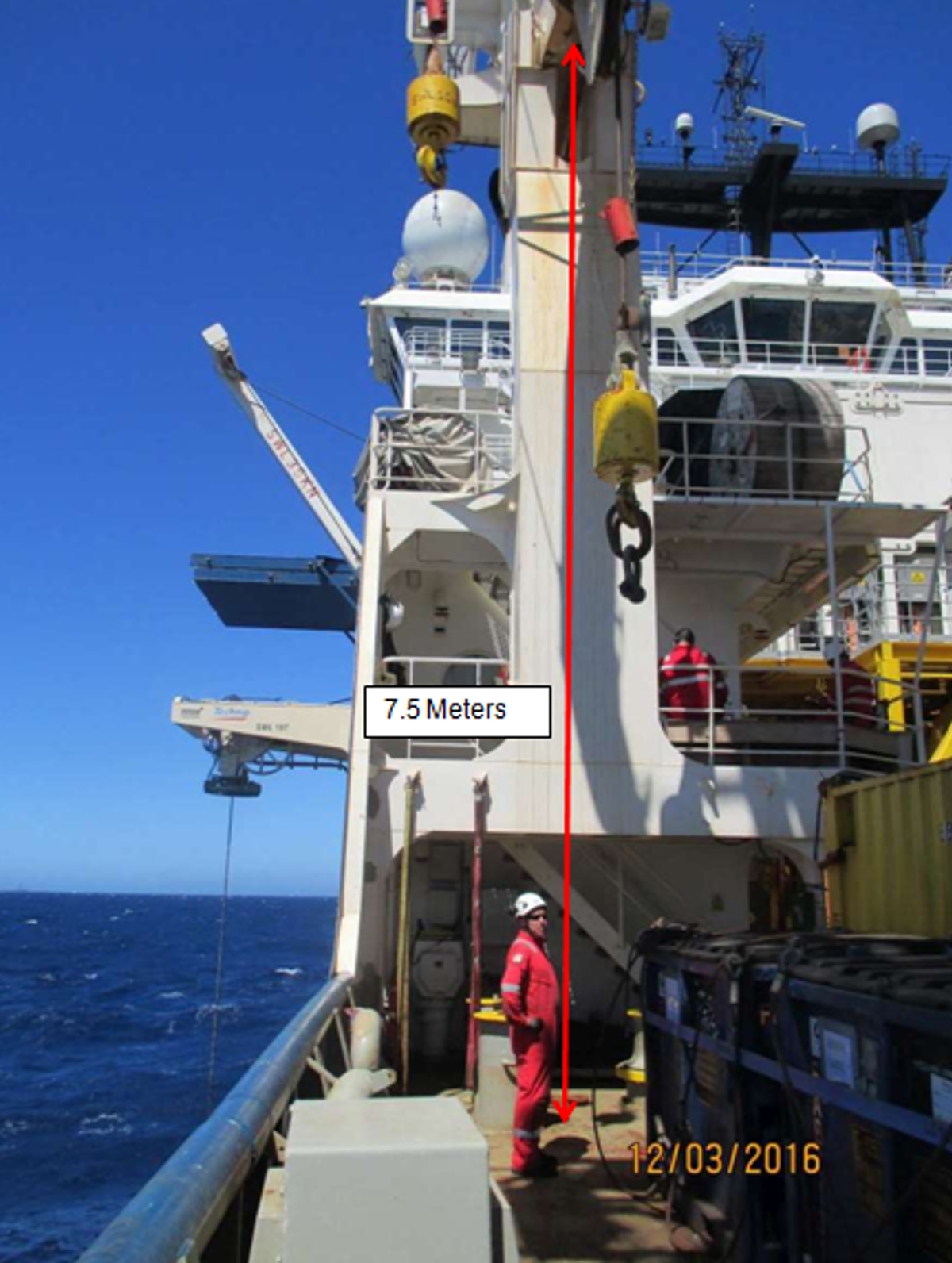Serious incident: Pad eye fell from crane boom and struck rigger
- Safety Flash
- Published on 17 May 2016
- Generated on 4 March 2026
- IMCA SF 14/16
- 2 minute read
Jump to:
A member has reported a potentially very serious near miss incident in which a crewman was struck by a falling object.
What happened?
The incident took place when a 50 Te deck crane had just recovered a high pressure running tool and was being placed back into the boom rest. A rigger was preparing to secure a remotely operated vehicle (ROV) hook into a safe recess when a fixed pad eye (1.78 kg) on the knuckle boom broke free, fell 8.5 metres and struck the rigger. The pad eye hit a glancing blow on his safety helmet and down to his right forearm. The rigger was unharmed and after examination he was cleared for full duties.

Our member’s investigation revealed the following:
- the pad eye was damaged and extensively corroded, likely from unreported impact or damage.
- the pad eye-s poor condition and corrosion was not identified by a number of persons, though there had been a number of inspections and checks over several months. However defects had become ‘normalised’.
- a previous unreported or unnoticed damage to the crane boom pad eye had occurred.
- when the crane was stowed on the crane rest, the pad eye on the knuckle boom was seen to be too close to the crane rest. This increased the likelihood of operator error and clashes.
Our member suggested the following actions:
- assess all crane booms for potential for boom/crane rest damage or clashes.
- ensure that crane checks and inspections are carried out regularly and thoroughly, particularly checking corrosion, damage or defects.
- check carefully to ensure that crane boom rests, and the likelihood of dropped objects from crane boom and rests, are included in crane inspections and dropped object surveys.
Members will be aware that in recent times there have been a number of incidents reported in which objects have fallen from the crane itself. This incident forms a timely reminder to redouble our efforts to check areas that might otherwise be overlooked in the search for potential dropped objects.
Members are also reminded of Guidelines for lifting operations.
Related Safety Flashes
-
IMCA SF 21/15
7 December 2015
-
IMCA SF 21/15
7 December 2015
-
IMCA SF 10/15
16 July 2015
-
IMCA SF 02/15
5 February 2015
IMCA Safety Flashes summarise key safety matters and incidents, allowing lessons to be more easily learnt for the benefit of the entire offshore industry.
The effectiveness of the IMCA Safety Flash system depends on the industry sharing information and so avoiding repeat incidents. Incidents are classified according to IOGP's Life Saving Rules.
All information is anonymised or sanitised, as appropriate, and warnings for graphic content included where possible.
IMCA makes every effort to ensure both the accuracy and reliability of the information shared, but is not be liable for any guidance and/or recommendation and/or statement herein contained.
The information contained in this document does not fulfil or replace any individual's or Member's legal, regulatory or other duties or obligations in respect of their operations. Individuals and Members remain solely responsible for the safe, lawful and proper conduct of their operations.
Share your safety incidents with IMCA online. Sign-up to receive Safety Flashes straight to your email.